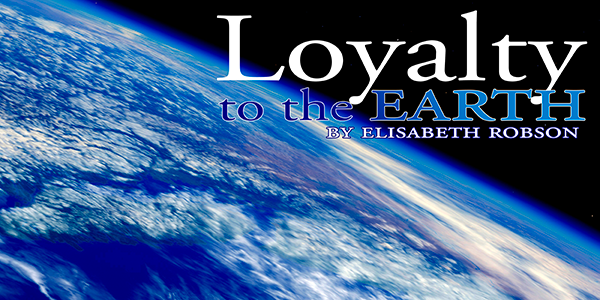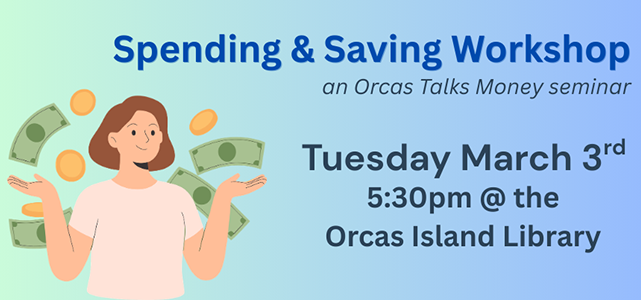If there is a lot, we take a lot; if there is a little, we take it all.
— Lyle Lewis, Racing to Extinction
||| LOYALTY TO THE EARTH by ELISABETH ROBSON |||
We are captives of a story. This story tells us that more is better. More energy, more extraction, more growth, more things. That progress is measured in increase. That human ingenuity will always find a way to squeeze more out of the Earth, as if the Earth is infinite.
Somewhere along the way, we convinced ourselves that we were different. That the laws binding every other living being did not apply to us. That while forests have limits, while aquifers run dry, while every species must live within the means of its land, we—uniquely, gloriously—could transcend such constraints.
Civilization is built on this illusion. The illusion that energy is something we produce, rather than something we extract. That resources are not finite, but merely waiting for human ingenuity to unlock them. That growth is inevitable and right, rather than an aberration that, unchecked, leads only to chaos and collapse.
But nature does not bargain. Nature does not recognize our economies, our technologies, our faith in progress, or the stories we tell ourselves about our own exceptionalism. The biophysical world has rules, and they are simple: You cannot take forever. You cannot burn forever. You cannot grow forever. You must give back at least as much as you take, or you will destroy your landbase, and thus, destroy yourselves.
And yet, we ignore these rules. We take and take and take some more, without giving anything back. The history of energy and materials and endless growth is not just a history of extraction—it is a history of refusal. Refusal to accept that we, like every other creature on Earth, are bound by limits. That there is a carrying capacity, and we have long overshot that capacity. That surplus today does not guarantee abundance tomorrow.
Even now, as the planet groans under the weight of our excess, we cling to the fantasy that we can engineer our way out of this. That a new energy source will save us, that better technology will allow us to keep consuming, that a “green” version of more is possible.
But there is no room for more. The forests have no room for another cut. The oceans have no room for our waste. The wildlife holocaust we have unleashed is accelerating. Earth herself is telling us no, if we’d only listen.
Other species listen when the land tells them enough. When the rains do not come, when the food grows scarce, they slow, they migrate, they adapt—or they die.
We fail to listen. We fail to understand. We build machines to extract the last of what remains. We burn through the natural world, turning the living into dead commodities as if we’re on a global murder spree. And we will not stop, because we believe we do not have to.
But we are not gods. We are not separate. We are not immune. And the laws of physics and biology will not bend for us. The story we’ve made up about ourselves is false.
The only choice left is whether we recognize this before it is forced upon us; whether we stop on our own terms, or whether the Earth—unmoved by our delusions—stops us instead.
This day and every day, stop and listen. The Earth is telling us loud and clear, there is no room for more. Undo the story of human supremacy, of infinite growth on a finite planet, and begin the work of less.
![]()
**If you are reading theOrcasonian for free, thank your fellow islanders. If you would like to support theOrcasonian CLICK HERE to set your modestly-priced, voluntary subscription. Otherwise, no worries; we’re happy to share with you.**









Thanks, Beth, for your wise and articulate point. One point, sadly, is that while your words are eloquent, they are talk. You and perhaps millions may agree with these talks, but we have all failed to figure out how to Walk the talk. Your use of Quinn’s quote at the end is, of course, also more talk, tho it leads to Walk when we’re up against the wall. I’ve yet to do any research on where we were named “Homo Sapiens Sapiens” (“wise” humans). Maybe someone coined this term while under some influence, whether biochemical or under some power-inadequacy spell. I find it impossible to reconcile “wise” with our fast track creation of a Mass Extinction Event. One way to look at it is that we are ending this immature phase of our species and toasting ourselves (Nature’s built-in Kill Switch) in prep for the kind of relationship that you and indigenous cultures for centuries have lived within: boundaries, limits, and reciprocity. The wince is for those who have children today, as they will be on the front lines of the transformation, for all the world not looking very pretty. Talk is soooo easy. Walk isn’t really that hard, but it does require more energy, and more: commitment.
A wise reiteration of what conservationists, just say 15% of the American population, know of the state of things, Elizabeth. But as Joe aptly reminds us individual talk is cheap and collective action very difficult while going against the strong currents of capitalist enterprise. As a young man I became enthralled with the natural/wild world and the wise words of so many who saw early just where this first world human juggernaut was headed. But there was reason for hope.
Most of what serves as “conservation” or “preservation” now, even in the most prescient of political administrations, is nothing more than band aids on thousands of serious ecological wounds. No amount of recycling, or use of your own bags, or purchasing 35 miles per gallon vehicles, or biking, or eating less cow muscle or finally leaving the struggling SRKW alone will move the needle of restoration of the richness and diversity of the past world. Not so long ago.
Nature will prevail of course and there are still a million small wonders to delight in. But as an old man who has lived well and stared into the heart of the wild I cannot abide by the cacophony of foolish happy talk for it is just another form of human delusion. We can be kind to others and enjoy small wonders as the vast majority of humankind push us over the brink that took about 200,000 years, a blink in time, to develop.
Steve, I mostly agree with you. I think it’s up in the air whether nature will prevail. Certainly it will take many millions of years to recover from us if it ever does. We are foreclosing much of what took billions of years to create; in addition to the sixth mass extinction and wildlife holocaust we’ve unleashed, we’ve poisoned the entire planet with a variety of heavy metals and industrial toxic chemicals that will continue to impact life on Earth long after humans are done and gone.
And I agree with the “talk” — it is just talk as there is nothing we can do to stop the juggernaut and where it is heading on an individual basis.
I keep talking (well, writing) because I hope to entice even just a few more people to defend the natural world whenever and wherever they can, so as to protect a few more square inches… simply so I can hope for something to remain after we’re gone, rather than nothing at all. That is the best we can do at this stage.
The human race isn’t handling this situation very well, and that may be our downfall notwithstanding the few who hope to survive in redoubts or on Mars. But nature will do fine, and will recover quickly … nature’s way, not ours. Insofar as humans are concerned, it never will be the same as it was, but nature tolerates and in fact initiates change, and we being part of nature participate in that process. People today define “nature” as its condition some years ago- 20 or 5,000 years ago. This is typical of homocentric thinking. What is poisonous to us is not poisonous to everything, and given time, life, altered, will carry on. Nature as we know it will be changed, but nature will continue to follow the rules of physics, biology, chemistry and sciences beyond our current knowledge.
Those of us immediately threatened or affected scramble when we have to, and are criticized by that tiny percentage of the population who are free of burdens and have adequate income. I think that nothing will change until that percentage ratio reverses. At that point the human race can, if it chooses, look beyond itself.
Thanks for posting, and for continuing to educate the masses Elisabeth… obviously people need to hear it.
Telling people that because they’re only talking about an issue is not doing anything about the issue is a cheapshot. In this case talking about climate change, and ecological overshoot IS doing something about it. This is something that everybody should be talking about all the time.
“nature will do fine, and will recover quickly”
Bill, I know you are not an ecologist. You are an attorney. All the ecologists I talk to say that statement is absolutely false. So I’m wondering what you base that on?
To quote one of the ecologists: “The loss of millions of species would not only devastate ecosystems but also erase entire evolutionary lineages, many of which embody unique adaptations and symbiotic relationships that took billions of years to develop. This would be akin to the destruction of an immeasurable wealth of biological knowledge, each species representing a volume in the grand library of life.”
“Critically, the framing of “Earth will recover without us” abdicates responsibility for our role as destroyers of the biosphere. It assumes a passive stance when what is required is active, intentional intervention to stop destroying the living planet, and to help the natural communities of the world heal from our impacts.”
“The assumption that the Earth will recover if we collapse is not just flawed; it undermines the urgency and moral imperative to act decisively now. Preventing mass extinctions and ecological devastation is not just about saving “nature”; it is about preserving the very essence of life itself, of which we are a part. The libraries of living knowledge and ancestral natural communities we risk burning are irreplaceable treasures that future generations of all species deserve to inherit.”
“What is poisonous to us is not poisonous to everything, and given time, life, altered, will carry on. Nature as we know it will be changed, but nature will continue to follow the rules of physics, biology, chemistry and sciences beyond our current knowledge.”
So this just makes everything O.K. doesn’t it? That’s just another way of saying, “Look over here, don’t look over there.” So unless you yourself have some ideas (all of which have been put on the table before but because of unwilling politicians, pre-existing laws, and lawyers who are not willing to buck the system), I guess we should just move on and worry about something less terrible, something that may inconvenience us bit not kill us.
Like I’ve said before, between those of you who don’t want to hear about it, and those of you who think it’s o.k. because even if we die nature will carry on… that’s nothing more than a form of turning your back, of hiding your head in the sand… that is the problem.
If the goal is to change hearts and minds and thus behaviors, I suggest more success will be found with less haranguing, scolding and predictions of catastrophe. Trying to bully people into taking responsibility for their own ecological impact is obviously a losing game plan. It hasn’t ever worked, it doesn’t work now and it won’t work in the future. No one likes to be told what to do, especially by people they don’t like or respect. If changes are to be real and lasting, people must be inspired and led, not bullied and shamed.
I asked a personal friend who is an endangered species biologist for a quote on the topic of “nature will recover quickly”; he wrote:
The belief that “nature is resilient” and will inevitably recover from any disturbance is a dangerously oversimplified myth—one that has been weaponized by developers to justify environmental destruction for decades. In reality, ecological systems are incredibly complex, often finely tuned to local conditions developed over millennia, and when they are disrupted—by blading, logging, grazing, or hydrologic alterations—they never return to their original state. Restoration is not a rewind button; it is at best an attempt to simulate a few visible features of what was lost, usually under vastly altered conditions.
In my forty years of analyzing development projects that included mitigation or restoration requirements, not a single one has come remotely close to replacing the ecological function, diversity, or structure that was destroyed. Soils are compacted beyond repair, microbial communities are lost, and native seed banks are obliterated. Once the soil’s physical and biological integrity is compromised, the foundation of the ecosystem is gone. Invasive species take hold, outcompeting natives. Altered hydrology—whether from channel diversions, groundwater pumping, or impervious surfaces—changes the timing, quantity, and quality of water flows, often irrevocably.
Moreover, these failures aren’t just due to a lack of effort or funding—they’re rooted in the fundamental impossibility of replicating the complexity of a functioning ecosystem once it’s been dismantled. Most restoration efforts focus on surface aesthetics: recontoured landforms, planted vegetation, and temporary erosion control. But ecological function—pollinator networks, mycorrhizal symbioses, trophic dynamics, genetic diversity, and climate-sensitive interdependencies—cannot simply be reassembled like Lego bricks. Once disrupted, these networks often collapse in cascading, nonlinear ways.
This blind faith in nature’s resilience is especially dangerous in the era of climate change. Baselines are shifting rapidly, and the window for regeneration—where it is still possible at all—is narrowing. The idea that landscapes will “bounce back” ignores the very real and accumulating damage from heatwaves, droughts, fires, and chemical contaminants, not to mention the chronic pressure from land fragmentation and overexploitation.
In short, the notion that nature can always heal itself serves as a moral license for ecological harm. But in the real world—especially for the complex, localized systems we’ve spent decades unraveling—it is a fantasy. What we lose, we lose. Restoration may soften the blow, but it does not undo it.”
Get real. When people (like Elisabeth) try to educate people in a respectful manner, and they tell her she’s FOS, basically… that in itself is a form of naysaying. If you, all of you, would pull your heads out and look at the information she provides you might start making some sense beyond the dribble that I’m hearing from you.